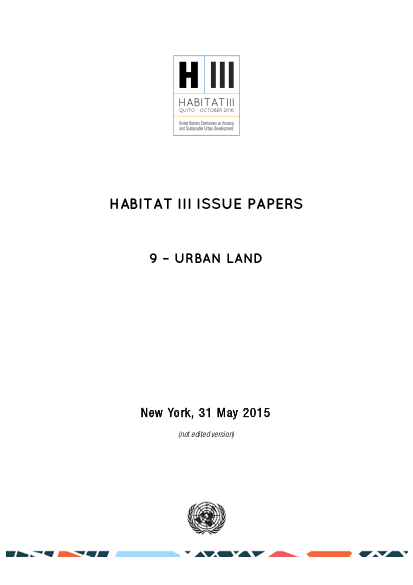
In some developing countries, rapid urbanisation is often associated with increase in tenure insecurity particularly for people living in slums and peri-urban areas. Urban land management and administration institutions face the additional challenge of high number of people who live and work informally in urban and peri-urban areas. In most countries, there is a lack of reliable land information that negatively affects urban planning and design, infrastructure and socio-economic development. When properly functioning, fit-for-purpose land administration systems support tenure security improvement, urban planning, service delivery, agricultural development, environmental management, city management, land taxation and land management.
This issue paper on "Urban Land" is part of a series of thematic reports offering a comprehensive, expert-level view of the processes of urbanisation that characterise today’s century of cities — and look forward to what could and should come next. The 22 “issue papers” were submitted by a range of multilateral institutions. They will ultimately be used to guide discussion by 10 formal “policy units”, which will focus on the six thematic issues deemed important for the Habitat III process. Made up of independent experts, these units touch on housing, resilience, equity and other issues. Eventually, they will each provide formal input regarding the crafting and, especially, implementation of the New Urban Agenda.
Links
Resource collections
- UN Habitat - Urban Response Collection
- Urban Response - Urban Crisis Preparedness and Risk Reduction
- Urban Response Collection - Community Engagement and Social Cohesion
- Urban Response Collection - Economic Recovery
- Urban Response Collection - Environment and Climate Change
- Urban Response Collection - Housing, Land and Property
- Urban Response Collection - Urban Crisis Response, Recovery and Reconstruction
- Urban Response Collection - Urban Resilience
